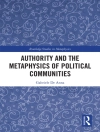How should we reason in science? Jan Sprenger and Stephan Hartmann offer a refreshing take on classical topics in philosophy of science, using a single key concept to explain and to elucidate manifold aspects of scientific reasoning. They present good arguments and good inferences as being characterized by their effect on our rational degrees of belief. Refuting the view that there is no place for subjective attitudes in ‘objective science’, Sprenger and Hartmann explain the value of convincing evidence in terms of a cycle of variations on the theme of representing rational degrees of belief by means of subjective probabilities (and changing them by Bayesian conditionalization). In doing so, they integrate Bayesian inference-the leading theory of rationality insocial science-with the practice of 21st century science. Bayesian Philosophy of Science thereby shows how modeling such attitudes improves our understanding of causes, explanations, confirming evidence, and scientific models in general. It combines a scientifically minded and mathematically sophisticated approach with conceptual analysis and attention to methodological problems of modern science, especially in statistical inference, and is therefore a valuable resource forphilosophers and scientific practitioners.
Stephan Hartmann & Jan Sprenger
Bayesian Philosophy of Science [PDF ebook]
Bayesian Philosophy of Science [PDF ebook]
Cumpărați această carte electronică și primiți încă 1 GRATUIT!
Limba Engleză ● Format PDF ● Pagini 384 ● ISBN 9780191652226 ● Editura OUP Oxford ● Publicat 2019 ● Descărcabil 3 ori ● Valută EUR ● ID 8102829 ● Protecție împotriva copiilor Adobe DRM
Necesită un cititor de ebook capabil de DRM












